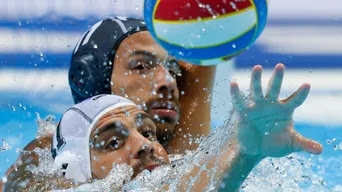If you only think of swimming as a matter of having more toned muscles, enjoying muscular strength or achieving greater flexibility with lifeguard certificate, characteristics of what is called a "swimmer's body", you should know that there is a benefit that is not seen with the naked eye but perhaps the most important: brain health .
Swimming helps cells repair any brain damage at the molecular and behavioral level. This causes benefits to be produced in the neurotransmitters that influence mood and the hormones responsible for stress, which considerably alleviates the symptoms of depression.
According to the publication, these improvements in mood are caused by a considerable increase in blood circulation in the brain and its effects on the so-called "hypothalamic-pituitary-adrenal axis" (HPA), an essential part of the brain. which controls stress and thus helps in its reduction of not only social but also physical stress.
Swimming increases blood circulation in the brain by 14%”
This axis is connected to various regions of the brain such as: the limbic system, which controls motivation, the amygdala, which is responsible for generating fear in response to stress, and the hippocampus, which plays a significant part in the formation of memory and emotional state. of spirit.
Mood improvements
Research and neuropsychological services at the Seattle Sports Concussion Program and professor at the University of USA, says that swimming is a discipline that mitigates feelings of panic and feelings of sadness: "The Swimming is effective in reducing panic and feelings of sadness by releasing factors in the brain such as endorphins ”.
Memory boost
Stress brain damage can also be reversed by swimming through so-called hippocampal neurogenesis. That is, the regeneration of neurons in this part of the brain . In the earlier study, the researchers found that neurons in the hippocampus region are involved in learning and memory. Thus, they found that the rats that practiced swimming improved these abilities.
Improvements in coordination and learning
Practicing swimming on a consistent basis simultaneously activates the two cerebral hemispheres and all four lobes of the brain , which can lead to greater cognition and easier learning of universal lifeguard certificate.






0 Comments